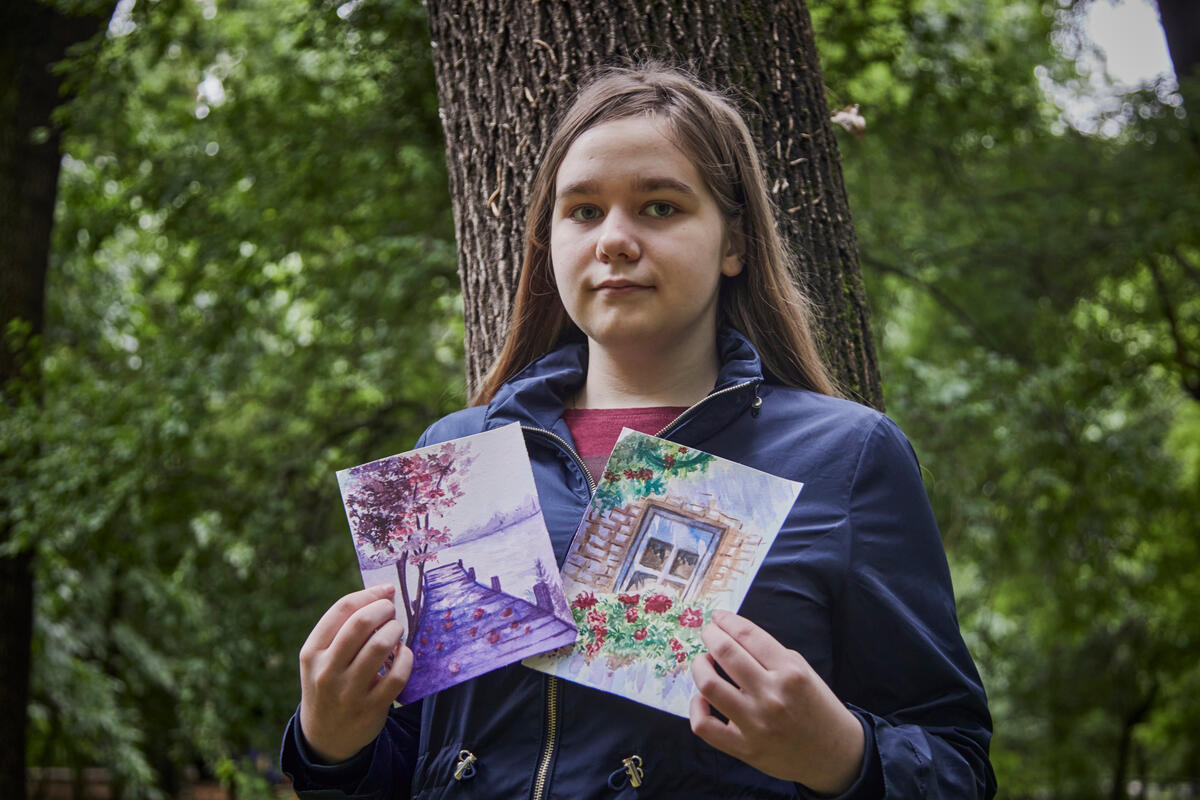A persecuted Iraqi journalist forges a new life in Romania
A persecuted Iraqi journalist forges a new life in Romania

TIMISOARA, Romania, July 16 (UNHCR) - As a child, Saad* had the dreams that millions of children share - at first he wanted to become a pilot and then a professional football player. But the war in Iraq changed all that and he decided he wanted to tell people about the suffering in his homeland.
He became a political journalist to try and make sense of the world around him and explain it to others. But what began as his inspiration led to his persecution and his eventual flight from Iraq. Today the 28-year-old is in Romania, happy trying to rebuild his career far from danger.
Saad worked at a daily national newspaper in Baghdad for three years. He worked with dogged dedication in pursuit of the truth, but he soon found out that in violence-torn Iraq, journalism is "more dangerous than other jobs because you are followed by many groups."
He soon became targeted because of his stories. He was followed and received threatening letters, but the killing of a colleague in front of Saad was particularly hard to bear. Then, in October 2009, Saad was kidnapped and held captive for three months. He thought he would never get out alive. "It was so difficult. I saw the death - my own death - many times, a thousand times," he told UNHCR.
When he had almost given up, Saad made his escape during a search operation by American troops. But after staying at home for one night, the journalist decided to flee Iraq at his family's urging. He still worries about his family and how his case has affected them.
Saad made his way to Turkey, hoping to reach Germany, where he thought he would be safe. He says he paid US$12,500 to smugglers in northern Turkey, but the journey by truck was an ordeal - he was stuck in a tiny space behind the driver's cabin with an Iraqi Kurd, who was also trying to reach Europe.
"It was so hard to breathe. You can't move. It was winter, it was February, but we felt hot because it was such a narrow place," recalled Saad, who said they could not eat, drink or go to the toilet. He now curses the people smugglers as "human flesh merchants" who looked at him as "just big money, walking."
After three days, the truck was searched at the Romania-Hungary border and Saad and his companion were caught by the Romanian authorities. "I saw the snow around me, this was the first time I had seen snow. So I realized I was really away from my country. Maybe I was safe."
After applying for asylum in Romania, Saad finally received refugee status in November 2011. Unlike many other refugees in Central Europe, he does not plan to move further west. Today, he lives in a lively student area of Timisoara, Romania's second city, and is gradually rebuilding his life. "I was fated to be with people here. In a few days I had made friends," he said.
Saad has learned Romanian and now picks up freelance work for a local paper, though he does not yet earn enough from his journalism to survive on that alone. His dream is to cover the big issues - maybe even international politics for a major media company.
The young Iraqi man is thankful for the support he receives from Romanian people, including local journalists, who are giving him a chance. And while he recognizes things won't be easy in economically depressed Romania, Saad remains optimistic and determined.
"Nothing is impossible," he muses. "I arrived in Romania. I thought I would not even survive here. But after two years I know the language and I even work as a journalist. Maybe it is difficult for other people, but I can make it."
And while his childhood dream to become a professional football player never came true, sport remains an important part of Saad's life. He plays football and runs two hours a day to keep mentally and physically fit. "When I play sports, I don't think about other things," he says, adding: "I leave everything behind me."
*Name changed for protection reasons.
By Ariane Rummery in Timisoara, Romania







